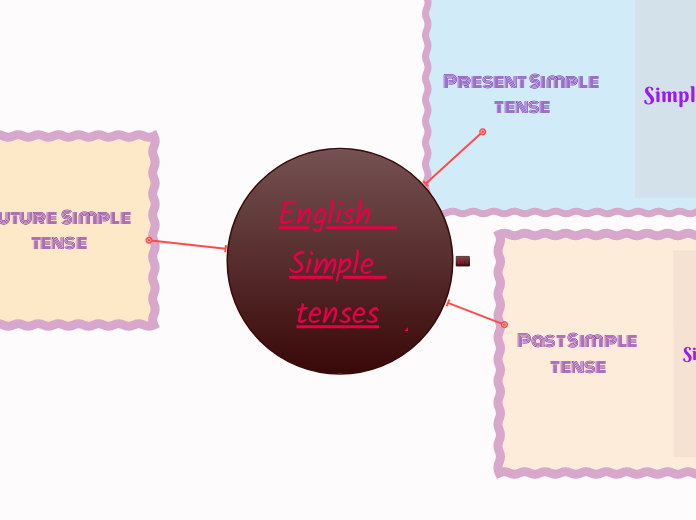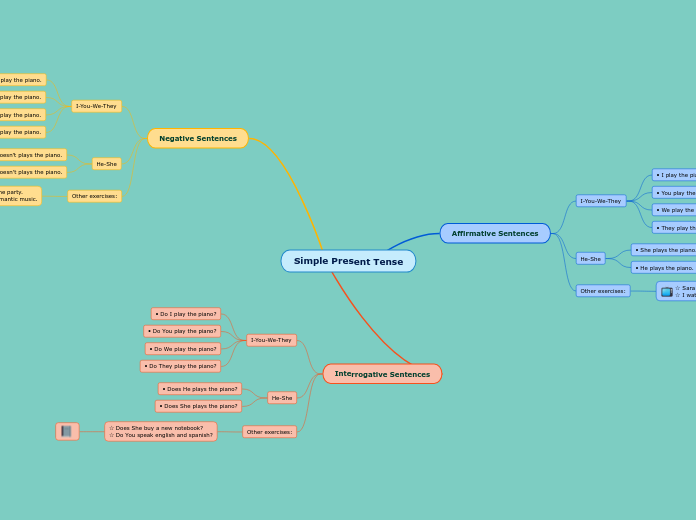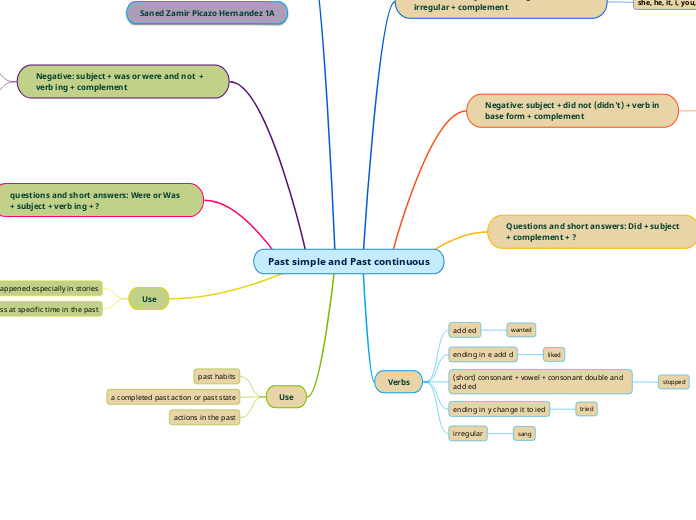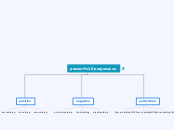English Simple tenses
Tenses demonstrate the time of actions centered around the subject of the sentence. These actions are called verbs and change according to tenses.
Future Simple
tense
There are four Future tenses:
- Future Simple ('with Will' and 'with Going to')
- Future Continuous
- Future Perfect Simple
- Future Perfect Continuous
Future Simple is used:
- to predict an event in the future
- to invite
- to give orders
- to express willingness
- for actions that have not yet occurred but that will occur at a future date
Past Simple
tense
There are four Past tenses:
- Past Simple
- Past Continuous
- Past Perfect Simple
- Past Perfect Continuous
Past simple expresses:
- an action that happened in the past and has no connection with the present
- an action that happened once in the past
- an action that happened regularly in the past
- an action that was true for some time in the past
- an event or action that already occurred
- an action that is finite - has both a starting and a stopping point
Some adverbs used with Past Simple:
- yesterday
- last month, last year
- ago (e.g. two days ago)
- in (e.g. in 1997)
- never, always, seldom, often, frequently, occasionally, once, twice
Structure:
Did + subject + Base Form of the Verb?
e.g. Where did you meet her?
Did she cook a cake last weekend?/ Did you go to school yesterday?
Type in your own examples or you can also choose from the examples below.
Form of word "to be":
Was I?Were you?Was he/she/it?Were we?Were you?Were they?
Form of word "to have":
Did I have?Did you have?Did he/she/it have?Did we have?Did you have?Did they have?
Structure:
Subject + did not/didn’t + Base Form of the Verb
e.g. They didn’t like my food.
She did't cook a cake last weekend./ You didn't go to school yesterday.
Type in your own examples or you can also choose from the examples below.
Form of word "to be":
I was notYou were notHe/She/It was notWe were notYou were notThey were not
Form of word "to have":
I did not haveYou did not haveHe/She/It did not haveWe did not haveYou did not haveThey did not have
Structure:
Subject + Verb in Past Simple (2nd form)
e.g. They lived in Spain three years ago.
She cooked a cake last weekend./You went to school yesterday.
Type in your own examples or you can also choose from the examples below.
Form of verb 'to be':
I wasYou wereHe/She/It wasWe wereYou wereThey were
Form of verb 'to have':
I hadYou hadHe/She/It hadWe hadYou hadThey had
Present Simple
tense
There are four Present tenses:
- Present Simple
- Present Continuous
- Present Perfect
- Present Perfect Continuous
Simple
Present Simple is used for:
- habits
- general truths
- repeated actions of events
- fixed arrangements/timetables
- feelings/opinions/beliefs
- instructions.
Some adverbs used with Present Simple:
- always
- usually
- seldom
- never
- sometimes
- often
- frequently, generally
- habitually, occasionally
- once, twice
Общий вопрос
Structure:
Do + Subject (I, You, We, They)+ V1 (First Form of Verb)?
Does + Subject (He, She, It)+V1 (First Form of Verb)?
e.g. Where does he work?
Do we usually walk in the park?/ Does he run every day?
Type in your own examples or choose from the examples below.
Form of word "to be":
Am I?Are youIs he/she/it?Are we?Are you?Are they?
Form of word "to have":
Have I?Have youHas he/she/it?Have we?Have youHave they?
Отрицание
Structure:
Subject (I, You, We, They) + do not / don’t + V1 (First Form of Verb)
Subject (He, She, It) + does not / doesn’t + V1 (First Form of Verb)
e.g. He doesn’t work in a bank.
We don't usually walk in the park./ He doesn't run every day.
Type in your own example or choose from the examples below.
Form of word "to be":
I am notYou are notHe/She/It is notYou are notWe are notThey are not
Form of word "to have":
I do not haveYou do not haveHe/She/It does not haveWe do not haveYou do not haveThey do not have
Утверждение
Structure:
Subject (I, You, We, They) + V1(First Form of Verb)
e.g. I usually go jogging at weekends.
Subject (He, She, It)+ V1(First Form of Verb) + s/es
e.g. She writes every day.
We usually walk in the park./ He runs every day.
Type in your own examples or you can also choose from the examples below.
Form of verb "to be":
I amYou areHe/she/it isWe areYou areThey are
Form of verb "to have":
I haveYou haveHe/she/it hasWe haveYou haveThey have








